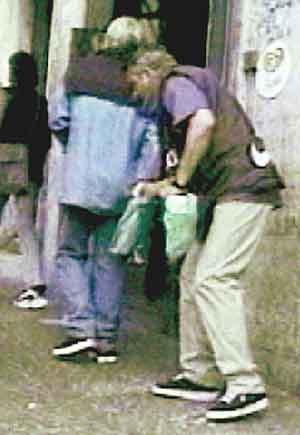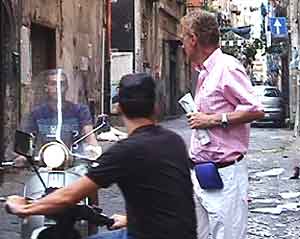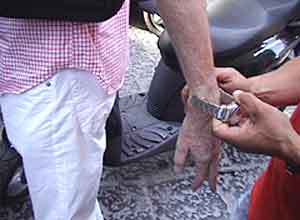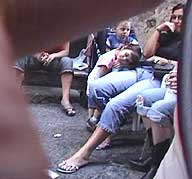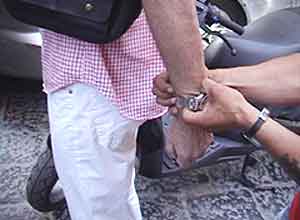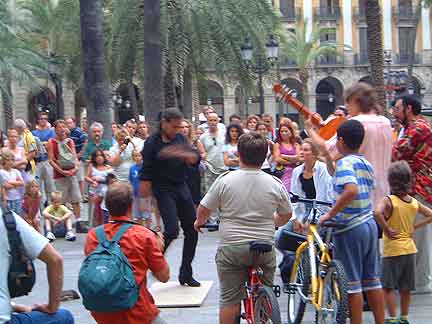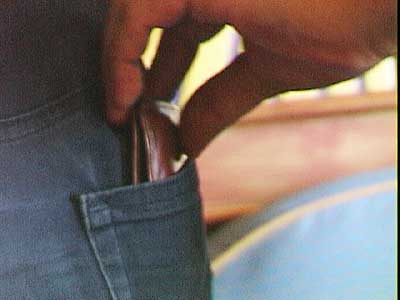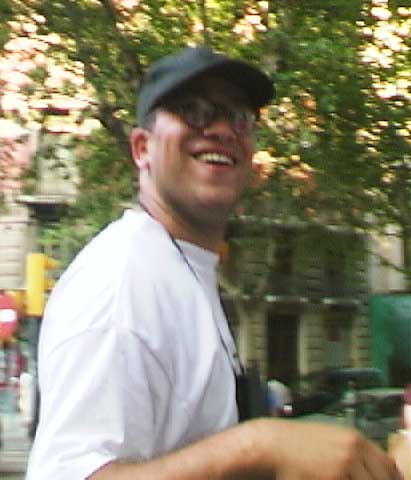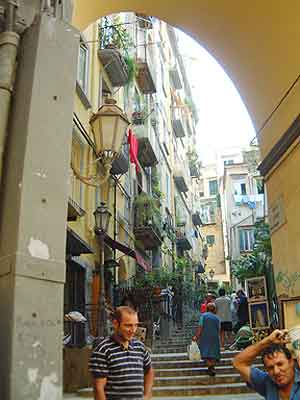
Naples, Italy— After lunch, Mario must leave us and we four are left to stumble through the dangerous quarter accompanied only by pidgin. Officer DC leads us deep into mafia headquarters, where families fight families and the Camorra rules. He points out the most life-threatening piazzas and says the gangs have their own areas and specialties: drugs, prostitution, stealing, counterfeiting.
Bob pauses to film a picaresque street; one of many that seem straight out of a black and white movie.
“Bob—” DC starts.
“Oh—I’ll put it away,” Bob apologizes.
“No. Bob.” DC pulls up his shirt and reveals his police belt and guns. “With me, you do anything. You are safe!”

Since our near-mugging here in 1994, we’ve been fascinated by this designated danger zone. Our motorcycle tour three years ago only increased the allure. Yet, we’ve ventured only a few blocks in at most, each time getting the shivers as spotters’ whistles echo off the high walls and Vespa-mounted muggers circle us like sharks around a bleeding seal. We’ve tried it carrying nothing, no jewelry, watches, cameras, or bags, only to chicken out with memories of three men on a silent scooter grabbing us from behind, and a hundred first-person reports of watch- and bag-thefts.

Today we’re not scared. We swing our arms carelessly. Walk without looking behind us. Leisurely pause to examine fresh produce, a wall plaque, fanciful architecture.
We’re going to see the biggest Rolex thief, DC tells us, and the number one drug dealer. It isn’t clear if this is one person or two, but it doesn’t matter. We turn down a street of blinding sun light and deep shadow, narrow, like an alley, like all the streets in this Italian barrio. It would look like a slum if it weren’t so full of Hollywood character. The female coterie in plastic chairs, the don seated suitably apart flanked by a pair of young men and a pair of mean dogs. The only thing wrong with the picture? AS seems too young to rule a family. I can easier picture him dancing in a gay bar, with his tight jeans and red t-shirt stretched over buff biceps. But what do I know about mafiawear? What I do know is that this is one tough thug, gracious in polite company, but very likely soon off to the clink like his homeboys.
This is part 5 of 5. — Part 1








